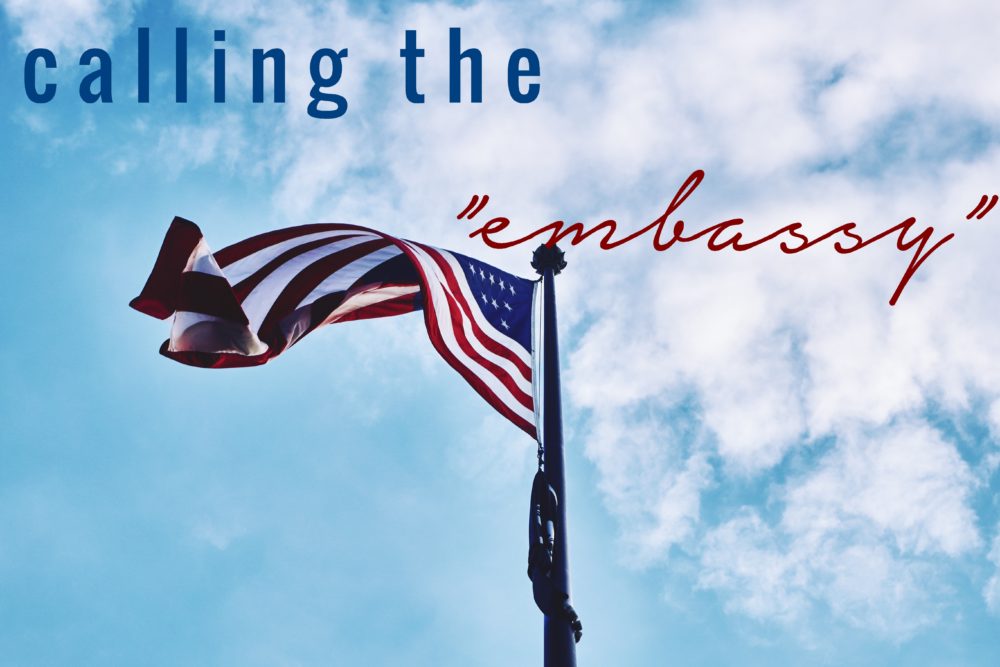
It was Friday night, and friends and I were tearing into slices of pizza as our children yelped and shrieked over on the restaurant’s bouncy castle. As it occasionally does with an expat crowd, the conversation turned to culturally confusing, even harrowing moments. I normally feel quite safe here; I love raising my children in Africa. But someone had asked about my encounter with the police this past year—and then my friend divulged her own moment with the police a few years back.
Her teenaged son had been driving among a main thoroughfare when, as is quite typical here, a political official’s convoy careened down the middle of the road. At this point, non-official vehicles are expected to clear the road—much as they would for emergency vehicles in the Western world.
The problem lies in seeing and hearing the motorcade before you are quite literally run off the road, or even into a pedestrians or motorcyclists. (Do not even get me started on what I think about this practice.) Another problem may lie in knowing when the motorcade has passed; woe to the motorist who assumes its previous position on the highway too early.
…As did my friend’s unwitting son. He was promptly pulled over by an angry officer—who accused him (the details are fuzzy at this point) of being a spy. It was only later that he elaborated: “His actions were a breach of national security, and I cannot allow it to stand. He interrupted a convoy of his Excellency, the President of Uganda and your secretary.”
Imagine the feelings as you call your spouse with the words, “They’re going to put our son in jail.” Not to mention the government is impounding our family’s only vehicle.
My friend watched as her son was hauled to a local police headquarters, which in my experience, resembles perhaps a concrete room with a tin roof; a filing room of sorts filled with daunting, impenetrable stacks; and a cell with a metal door—with a rusty hole punched in the bottom, from which her son would later call her name. She watched as her son was told to remove all clothing but his trousers—which I now know to be the mark of a suspected criminal.
Now, imagine the anguish if this were you: your bewildered, frightened, partially stripped son, led into an African prison cell, the door clanging shut, your husband squatting on the other side of the metal to hold his hand, to calm him when your own heart wants to sob and scream. Imagine the authorities speaking of even deporting him within the week. Imagine the powerlessness, the anger. The fear in the midst of men with power, but not necessarily justice.
Somehow, my friend’s husband remembered a number that he’d entered into his phone a few weeks prior, filling paperwork at the U.S. Embassy: the Embassy’s emergency number.
From there, the story breathed the sigh of relief that all of us were hoping for, there in the twilight of the restaurant. My friend’s husband described the atmospheric change simply by the embassy official on the phone, the major’s skillful banter diffusing the situation as deftly as an ATF professional. “Where in the States are you all from?” the major asked.
“Last eight years in Austin, Texas.”
“You a Longhorn?”
“Yep.” In fact, my friend’s husband was sporting a burnt orange Texas Longhorn shirt.
“Consider all of this an act of grace,” he intoned. “I’m a graduate of Texas A & M.”
The Major gave them clear instructions. And within the evening, the family walked—together—from the headquarters, teary and, to make an understatement, relieved.
So of course, sitting there with my own hand to my chest in relief and the pizza warm in my stomach, what did I do? I want that number! The glow of our cell phones lit our faces as I loaded those golden digits on my phone for a rainy day I hope will never arrive.
The whole ordeal reminded me of Elizabeth Shue in The Saint (you know, the one with Val Kilmer?), when she’s running, Russian villains in hot pursuit, to the embassy in Moscow, shouting: “I’m an American! Let me in! I’m an American!” The gate swings open, and she rushes in as it slams upon her infuriated would-be assassins. A U.S. soldier’s steely jaw—and his automatic weapon—emphasize the gate’s impenetrable lock.
And then I thought: What’s better than having the embassy in your cell phone?
Citizenship to a greater city—with an even more powerful “passport” than my remarkable little navy one (uh, and its awkward little photo).
What’s better than a knowledgeable, savvy, comforting Major from your home state visiting you in your dark, terrifying little cell? Full access to the President of the Universe who, because He didn’t even spare His own Son for me, promises me He withholds no truly good thing from me and my family.
The (real) major wouldn’t have been able to do much for my friend’s son if he’d truly done something wrong. But my true Major opened my cell despite very deserved charges of my accuser; despite my flagrant offenses against the true and very good King.
Here’s to having the true Embassy on speed dial.
And who is a rock, except our God?
This God is my strong refuge
And has made my way blameless…
2 Samuel 22:32b-33








1 Comment
Back from gone #1 Aim of ungodly people | Belgian Biblestudents - Belgische Bijbelstudenten - 9 years ago
[…] Calling the “embassy” […]